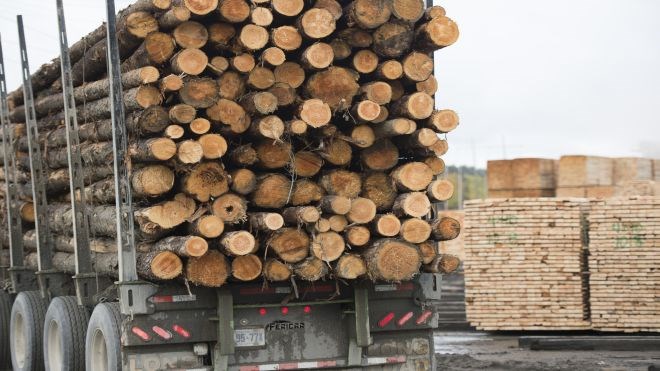A cornerstone industry of northwestern Ontario is at risk, says a regional municipal group, with the decision by the U.S. Department of Commerce to raise anti-dumping duties on Canadian softwood lumber to 20.56 per cent.
“Forestry is the economic lifeblood of communities across northwestern Ontario,” said Rick Dumas, president of the Northwestern Ontario Municipal Association (NOMA), in a July 28 statement.
“This unjustified and protectionist action will have a direct and harmful impact on workers, families, Indigenous communities, and local economies throughout our region.”
NOMA calls this hike in duties a “dramatic escalation in trade barriers for a sector vital to northwestern Ontario’s economy” that will “increase intensifies uncertainty for mills, contractors, and forestry-dependent municipalities — many of whom are facing significant ongoing economic challenges.”
Since the expiry of the last Canada-U.S. softwood lumber agreement in 2016, NOMA said the cumulative cost of American-imposed tariffs amounts to more than $10 million. This threatens investment, innovation and the long-term viability of the sector, the group says.
In a news release, Thunder Bay Chamber of Commerce president Charla Robinson urges all orders of Canadian government to “defend our interests and restore fair access to the U.S. market.”
“These rising duties threaten the stability of businesses and the livelihoods of thousands of people in Thunder Bay and across northwestern Ontario. Our region relies on a strong, sustainable forestry sector,” she said.
Both NOMA and the chamber are calling on Queen’s Park and Ottawa to:
- make the softwood lumber dispute an urgent national priority and engage with U.S. officials for a fair and timely resolution;
- accelerate legal challenges under CUSMA/NAFTA and the WTO to overturn these punitive duties; and
- work in close partnership with forest-sector stakeholders to develop mitigation measures and economic supports that protect communities from further harm.
The provincial government called the U.S. commerce department’s decision to increase duties on Canadian softwood lumber exports an “unjust burden” on American consumers that will raise construction costs in the U.S., make homes less affordable, and negatively impact economic growth on both sides of the border.
“These duties disrupt industries, drive up costs and put our shared competitiveness at risk,” said a news release with remarks attributed to assistant forestry minister Kevin Holland, Natural Resources Minister Mike Harris and Economic Development Minister Vic Fedeli.
“We remain firm in our position that these duties should be lifted entirely, for the benefit of workers and families on both sides of the border.”




